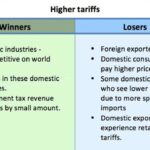
26 May 2016
Sweden: Negative Interest Rates
- Posted by Dejan Pekic BCom DipFP CFP GAICD
Clients have been asking about negative interest rates, how they work and what impact they will have into the future.
Our response has been to simply say that we do not know.
This is truly mind boggling stuff that makes no sense and would probably have Benjamin Graham (the farther of value investing) rolling in his grave.
We have attached a paper that details the impact of negative interest rates in Sweden and the resulting benefit to that economy.
The big concern is that it is also fueling a residential housing boom in Sweden. Yet again more money going into an asset class that once built adds little in the way of ongoing economic value to the economy.
We are not saying that there is anything wrong with debt as long as a large portion of it is being used to invest into creating productive assets such as infrastructure and business which employ people and drive economic activity.

20 May 2016
Friday Tidbit: 12 Rules
- Posted by Dejan Pekic BCom DipFP CFP GAICD
Campaigning for the Federal Election is well underway and the reporting is on 24/7 everywhere.
There is so much noise and blah blah blah but what we really want from our politicians is leadership on how to keep Australia prosperous today and into the future.
Jocko Willink is a retired Navy SEAL Commander and has formulated 12 rules for being an effective leader which we are sharing today with both Malcolm Turnbull and Bill Shorten.

17 May 2016
Bank Credit: Australian Residential Property
- Posted by Dejan Pekic BCom DipFP CFP GAICD
‘History doesn’t repeat itself, but it does rhyme’ is a famous quote by Mark Twain.
We looked back at research on past property crashes in Australia, yes they have occurred but we needed to go back, really far back in time.
The first property crash was during the 1890’s on the back of the gold rush and the second property crash was during 1930’s on the back of The Roaring 20’s and easy money (Chart 1).
Both events share a common leading indicator, once bank credit exceeded 40% of Australian GDP the property market busted not long after. The other key indicator was mass unemployment which was present during both busts.
And how does this relate to today?
Well today bank credit is around 125% of Australian GDP or over 3 times the level of past busts (Chart 2). We are in trouble.
Fortunately there is no mass unemployment and that is the biggest reason for why property prices have not significantly fallen.
The one piece of good news is that property prices did only fall by 30% during those two previous busts which is much better than the 50% fall in property prices experienced in North America and Europe during 2008.
WARNING, past performance is no guarantee of future performance and most importantly, the above comments do not constitute Personal Advice.

12 May 2016
Superannuation Co-Contribution for 30 June 2016: Up to a 50% Guaranteed Return
- Posted by Dejan Pekic BCom DipFP CFP GAICD
The Federal Government Co-contribution was introduced from 1 July 2003 as an initiative to encourage low to middle income earners to save for their retirement within superannuation.
If you make a contribution of up to $1,000 into your superannuation account before 30 June 2016, the Federal Government will add an additional sum provided that you are earning less than $50,454 this financial year.
The table below shows you how much the Federal Government will contribute for various amounts.
|
If your total
annual
income is:
|
…and you make
personal contributions of:
|
…then the maximum Government
co-contribution is:
|
|
$35,454 or less
|
$1,000
|
$500
|
|
$38,000
|
$830
|
$415
|
|
$42,000
|
$564
|
$282
|
|
$46,000
|
$297
|
$149
|
|
$50,454 or more
|
$0
|
$0
|
There is however an added complication this financial year and that is the PROPOSED lifetime non-concessional contribution cap of $500,000.
The PROPOSED lifetime non-concessional contribution cap of $500,000 was introduced effective Budget night, 7.30pm (AEST) on Tuesday 3 May 2016 and will take into account all past non-concessional contributions made on and after 1 July 2007.
Contributions made before commencement (ie 7.30pm AEST on 3 May 2016) cannot result in an excess of the lifetime cap and those who have exceeded the cap prior to commencement will be taken to have used up their $500,000 lifetime non-concessional contribution cap.
However all new non-concessional contributions such as the super co-contribution made after Budget night that exceed the cap (after including all past non-concessional contributions since 1 July 2007) will need to be removed or be subject to penalty tax arrangements.

10 May 2016
Wanted: Jobs – Machine Learning Explored
- Posted by Dejan Pekic BCom DipFP CFP GAICD
Development in the field of deep learning will continue to give computers the ability to learn, recognise objects in photos, hear and think.
In short, AI or artificial intelligence is very close now and instead of being fearful or pushing against this change the smart question becomes which new skills do you learn to join the innovation and get a job.
For example, 2020 Visionaries.

4 May 2016
Australian Federal Budget 2016
- Posted by Dejan Pekic BCom DipFP CFP GAICD
The Federal Treasurer Scott Morrison has handed down his first Budget and some of the biggest changes to superannuation since 1 July 2007.
For example the proposed cumulative non-concessional super contribution cap of only $500,000 that starts on 3rd May 2016 and is retrospective from 1 July 2007.
For a detailed summary please refer to the attached 2016 Federal Budget.















